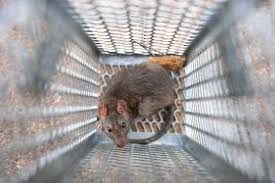Expert Insights: The Top Rodent Exclusion Methods You Need to Know

Are you tired of seeing rodents in your home? Rodent exclusion will help you. Home pest prevention is critical for safe and comfortable living.
In this blog, we will explore the top rodent exclusion methods. These tips will help you keep pests out for good. What are the best ways to seal entry points?
We will break down each method and explain why it works. You will learn practical steps to carry them out right away.
Say goodbye to unwanted guests with our expert insights. Let’s get started on rodent exclusion and home pest prevention.
Identifying Common Entry Points
Rodents often find their way into homes through small, unnoticed entry points. These include gaps around windows and doors, cracks in the foundation, and holes in the roofline.
Chimneys, vents, and utility pipes are common entry points. It’s crucial to inspect these areas to spot any potential access points.
Even tiny openings, as small as a quarter of an inch, can be large enough for mice to squeeze through. Identifying and fixing these entry points is the first step in effective rodent exclusion.
Sealing Cracks and Gaps
Once you’ve identified the entry points, sealing them is crucial to preventing rats from entering the house. Use materials like caulk and expandable foam to fill small gaps and cracks. For larger openings, steel wool or wire mesh are effective options, as rodents cannot chew through them.
Make sure to repair any damaged screens on windows and doors and install door sweeps to close gaps beneath doors. These simple steps will make it harder for rodents to enter your home.
Using Rodent-Proof Materials
When sealing entry points, choose rodent-proof materials to ensure long-term exclusion. Steel wool and wire mesh are great for small holes, as rodents cannot chew through them. Metal sheeting can be used to cover larger gaps.
Installing metal kick plates on doors is another effective way to deter rodents. By using rodent-proof materials, you’re creating a barrier that makes it impossible for rodents to break through. This helps with rodent exclusion and adds to the durability of your home.
Regular Home Maintenance and Inspections
Regular home maintenance and inspections are key to keeping your home rodent-free. Check your home for any new cracks or gaps monthly and seal them. Inspect the roof, attic, and basement for signs of rodent activity.
Store food in airtight containers and keep your home clean to reduce attractants. Some of the best pest control in Palmetto includes routine home inspections as part of their service. Regular maintenance helps with early detection and prevention, making it easier to keep rodents out.
Implementing Natural and Chemical Deterrents
Using natural and chemical deterrents can be an effective way to keep rodents at bay. Natural deterrents include peppermint oil, which rodents dislike and can be placed around entry points.
Cayenne pepper and garlic are natural rodent repellent. For chemical deterrents, rodent-repellent sprays can be used around the perimeter of your home. Always follow the manufacturer’s instructions to ensure safety.
Learn the Top Rodent Exclusion Methods
Effective rodent exclusion requires consistency and thoroughness. By following these rodent proofing tips, you can keep your home safe. Check and seal all cracks and gaps.
Use rodent-proof materials like steel wool and metal sheeting. Regular home maintenance is crucial for rodent proofing. Carry out natural and chemical deterrents for added protection.
These rodent exclusion methods will help you maintain a rodent-free home. Stay vigilant and your home will stay safe and comfortable.
Did you find this article helpful? If so, check out the rest of our site for more informative content.




